Your cart is currently empty!
Tag: Birds
-
Surprises Every Day
When you let your chickens run free, you never know what they will do or where they will go. A few days ago I heard a rattling in the shed we use to store hay and straw, and where our wonderful UPS driver picks up and leaves packages. When we have an outgoing package, we put the package in the shed and leave the doors open for the UPS driver. Our regular UPS driver then closes the door when he picks up the package.
What he didn’t realize is that one of our hens had jumped up into the shed earlier and was quietly sitting on a bale of hay in the corner. He closed the door, trapping her inside, and I was hearing her trying to get out later a few hours later.
Now we leave the shed door open so she can lay an egg where she wants to. These are pictures of the shed, Yuki-hime on the bale of hay, and the egg she laid today.
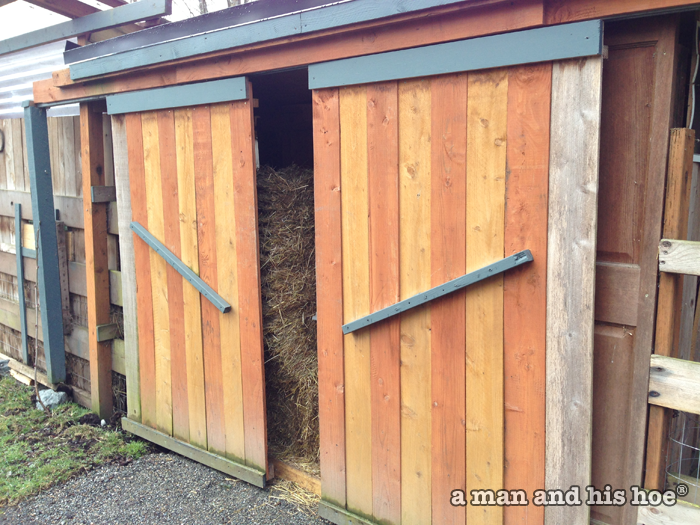
Hay and Straw Shed 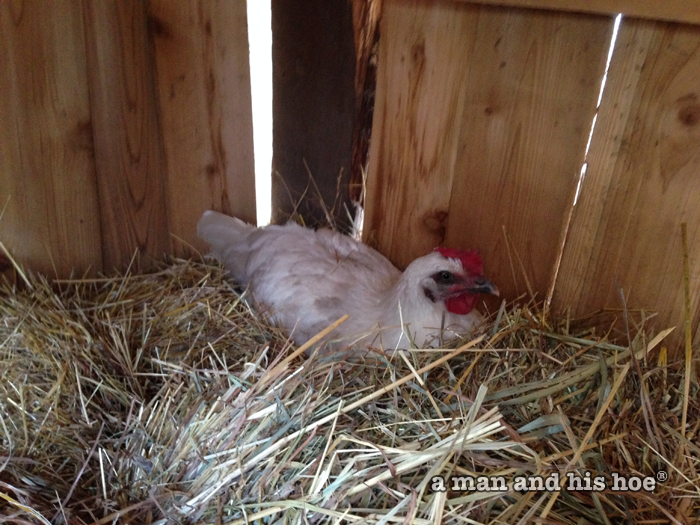
Yuki-Hime in the shed. 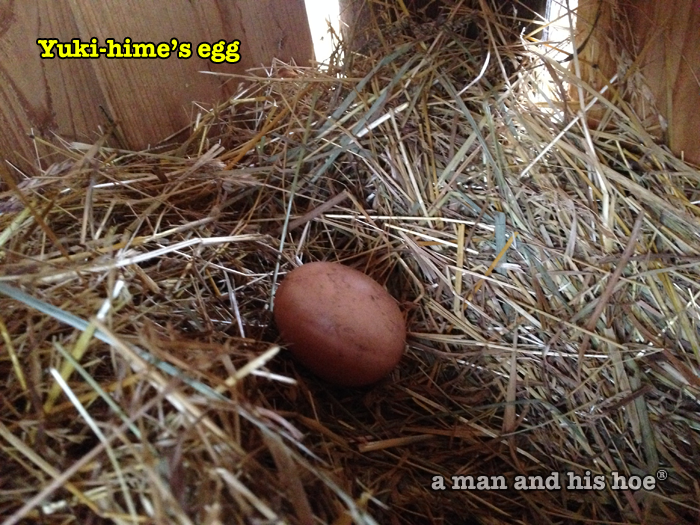
Yuki-hime’s Egg And below is a photo of a two and a half month old daughter with her mother. The mother is laying eggs again and is checking out the elevated dog house used by other hens for laying eggs. An older chick, she still spends much of the day with her mother, and roosts with her at night. Even with their tiny brains, chicks display a need to be with their mothers, even when they are well able to be on their own.
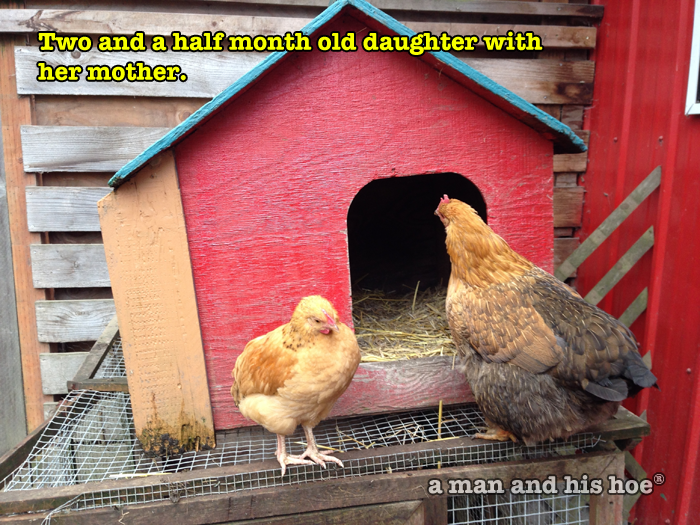
2 ½ month old daughter with her mother. Which brings to mind this article by Nicholas Kristof, Is That Sausage Worth This, where he describes the dreadful conditions under which most pigs are raised. One has to question the sanity of modern farm industrialists who treat animals as if they are just machines. Spend time with any farm animal, be it a cow, a pig, or a chicken, and you realize that they are full of emotions. As youngsters they love to play. Even little chicks play with each other and with their mothers.
The drive to raise these animals as cheaply and as quickly as possible is making farmers to act as monsters. And all of us who go along consuming these products without thinking are their unwitting accomplices. The next time you go shopping for chicken, ask your grocer, “Was this chicken raised by its mother?” Does it matter? Did it matter to you that you were raised by your mother?
-
Never Enough Nests?
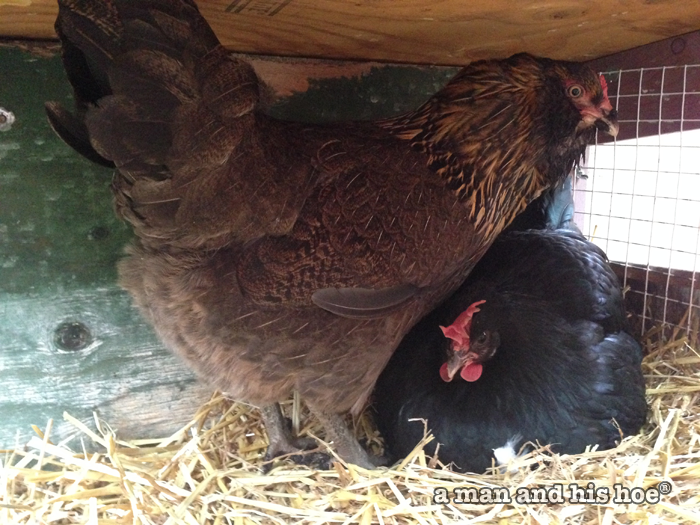
Two hens wanting the same nest It’s not that there aren’t enough nests, it’s that hens want to use the same nest. Some days I’ll go to the coop to check out what all the cackling is about, only to see one hen on a nest, five empty nests nearby, and another hen expressing her frustration that the nest she wants to use is occupied.
By mid afternoon, the more favorite nests can have many eggs. It’s not always possible to tell which hen laid which egg, but by observing throughout the day which hens are using a particular nest, it’s possible to figure out the hen which laid a specific egg by the color and shape of the egg.
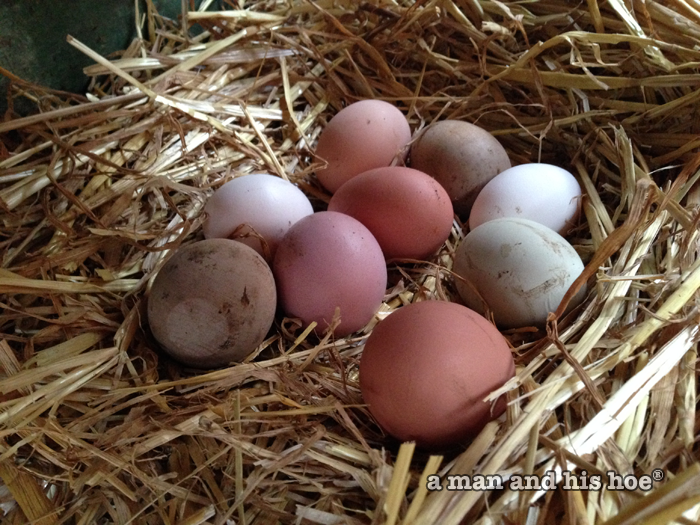
Nest full of eggs -
A Chick Grows Up

A Chick Grows Up
Words lack the capability to describe the love and care a mother hen showers on her chicks. You have to see it to understand how important mother hens are to chicks. Born at the end of November, the chick at 2 and a half months of age is nearly halfway to becoming an adult. At times, she ventures out on her own, but she still spends much of the day with her mother, and roosts with her at night. This is what humanely raised chicken looks like. The chick is 13 weeks old now. You can scarcely find a chicken that has enjoyed life so long in your supermarket. You certainly won’t find any that have had the joy of being raised by a mother. At a man and a hoe, that is the only kind of chicken I raise.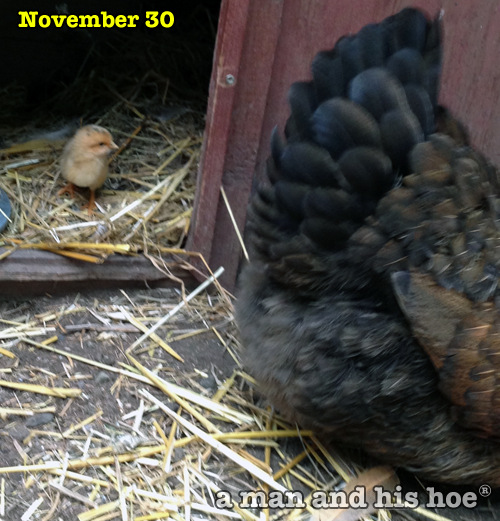
November 30, 2013 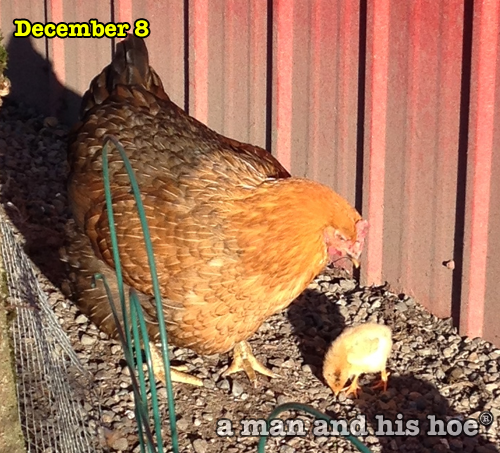
December 8, 2013 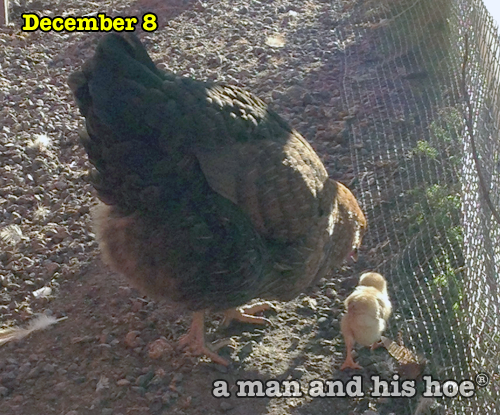
December 8, 2013 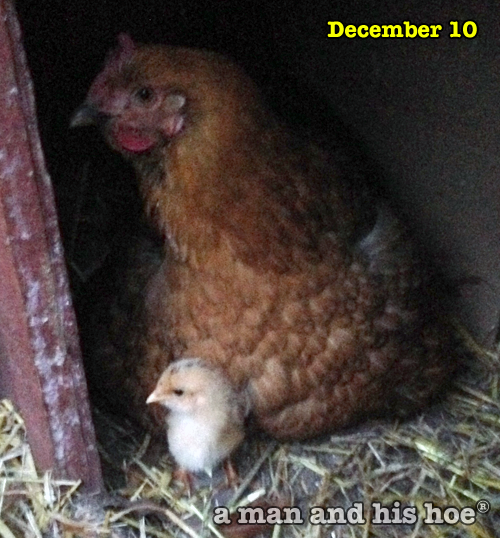
December 10, 2013 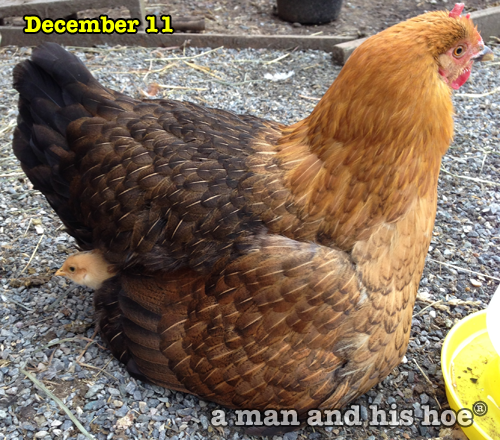
December 11, 2013 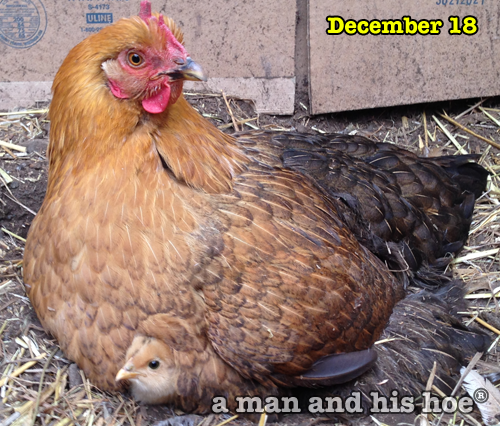
December 18, 2013 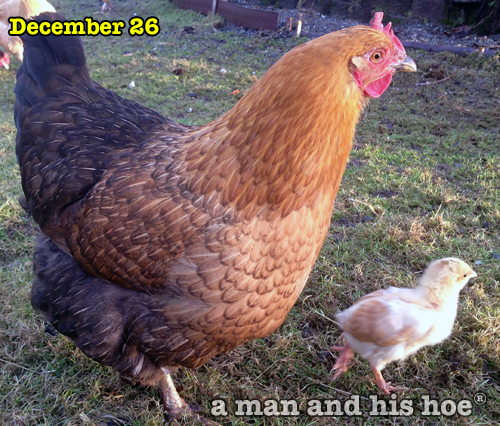
December 26, 2013 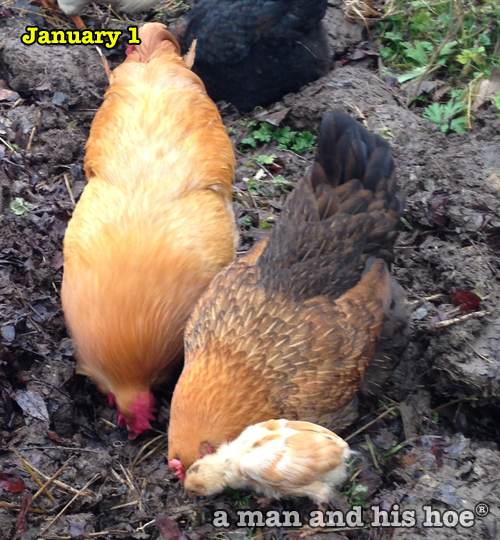
January 1, 2014 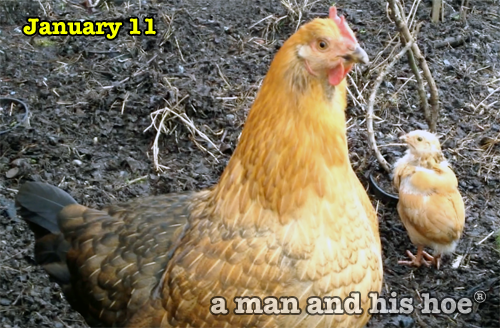
January 11, 2014 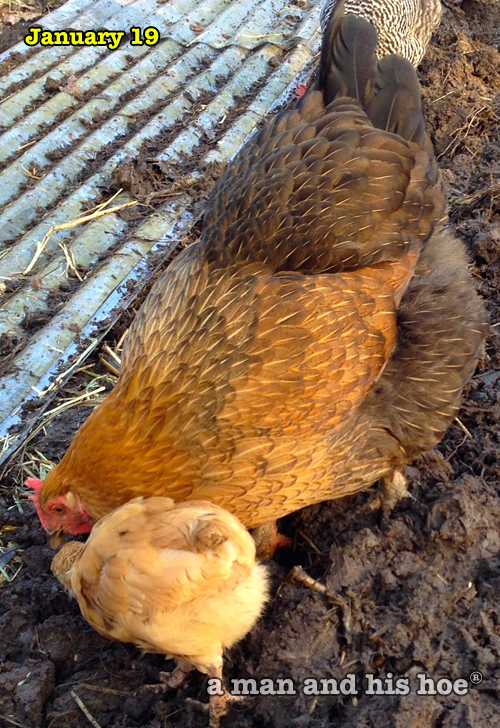
January 19, 2014 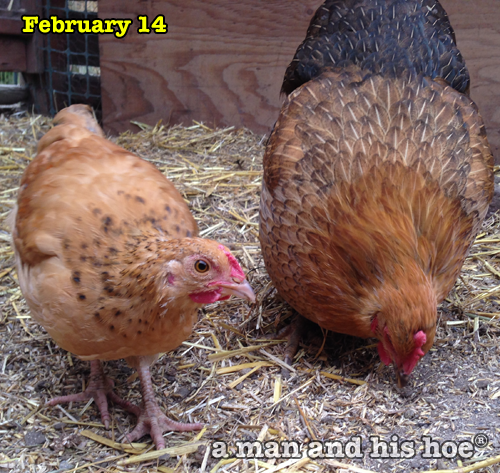
February 14, 2014 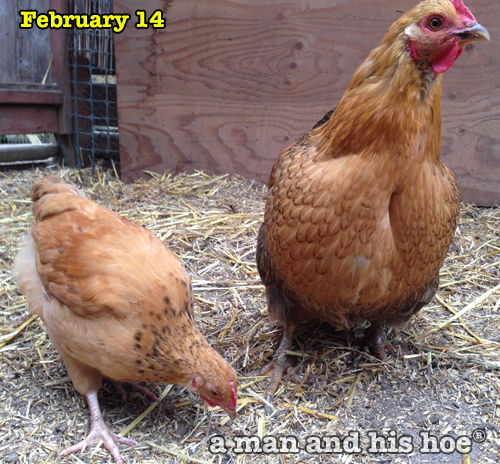
February 14, 2014 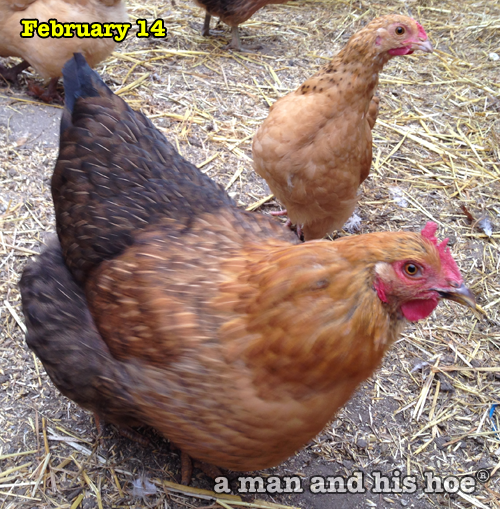
February 14, 2014 -
Edible Recycled Chicken Manure
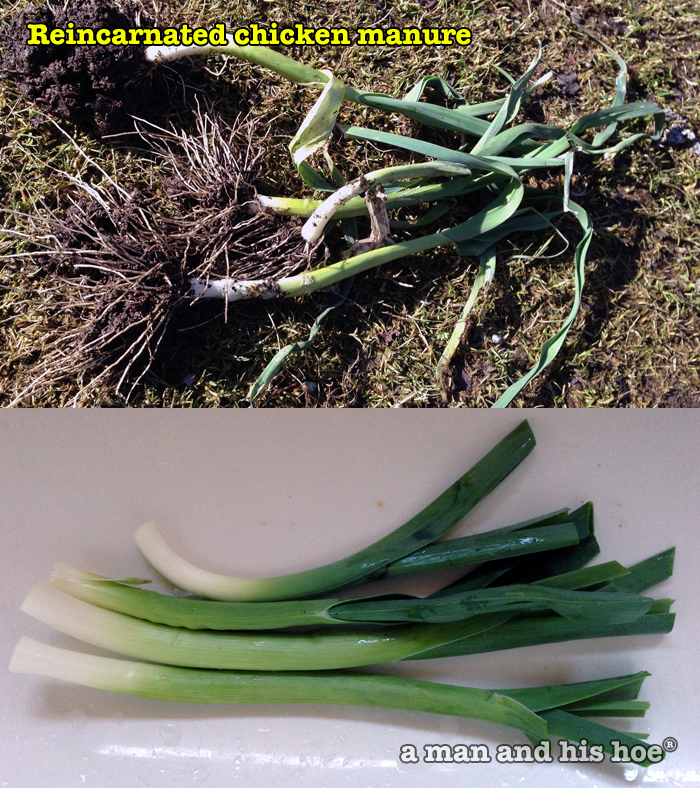
Reincarnated Chicken Manure
So what happens to chicken manure when it is reincarnated? It turns into edible wonders, like these over wintering onions I pulled this morning. Most chicken farmers get rid of their egg laying hens by the time they have gone through two egg laying seasons. However, on the micro scale that I operate, the manure these older hens is as valuable as the eggs they lay. I’ve had hens live more than seven years. Billy, the oldest rooster, is five years old this year.
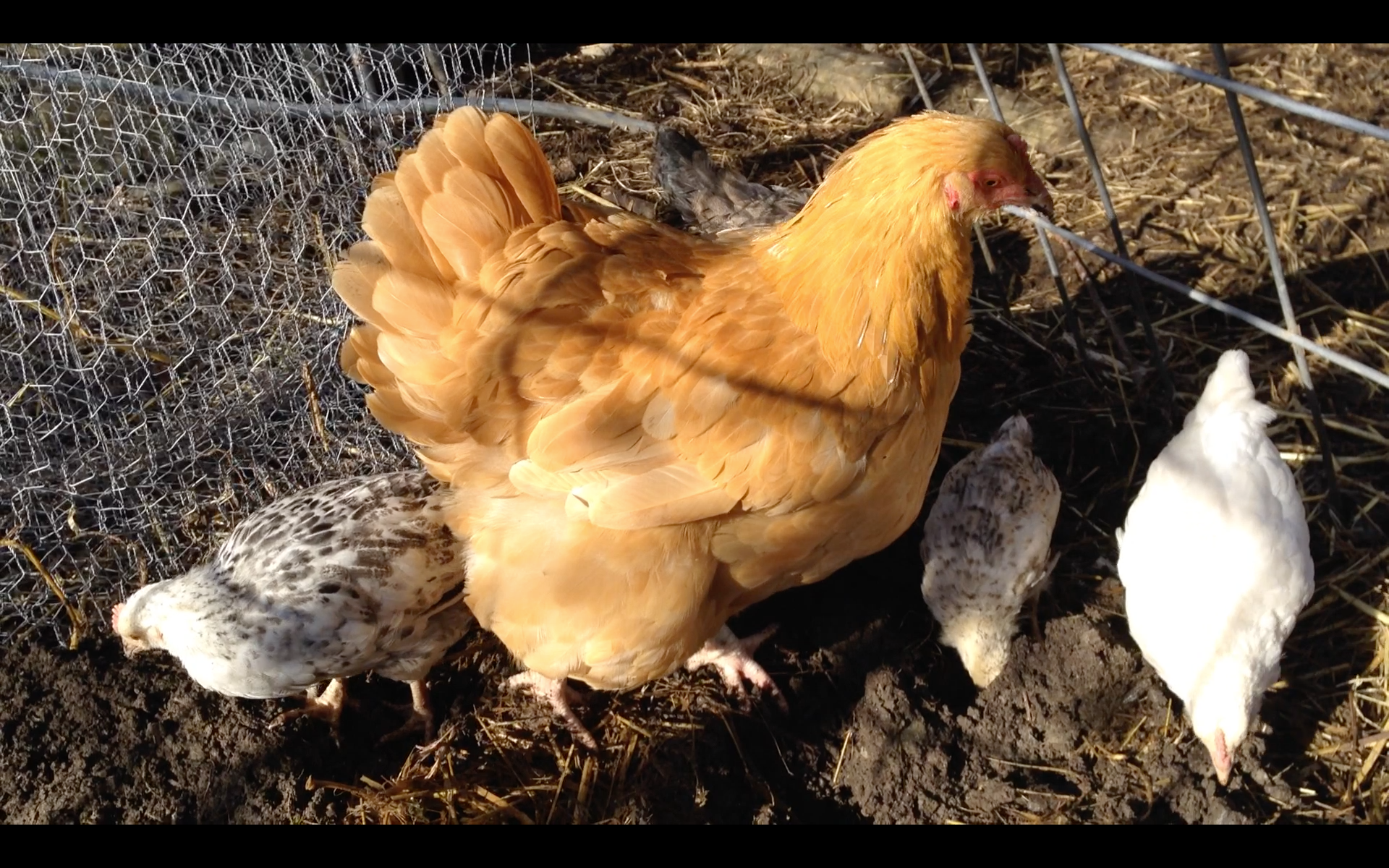
Eight Week Old Chicks
The chicks born on December 19 are 8 weeks old now. They are still spending their days and nights with their mother. Most commercial broiler chickens are in the supermarket by 8 weeks of age. These chicks are still having the time of their lives foraging for food with their mother. Here, they are digging for earthworms next to a compost pile. -
Staying Warm
[wpvideo rA8Rcrdn]
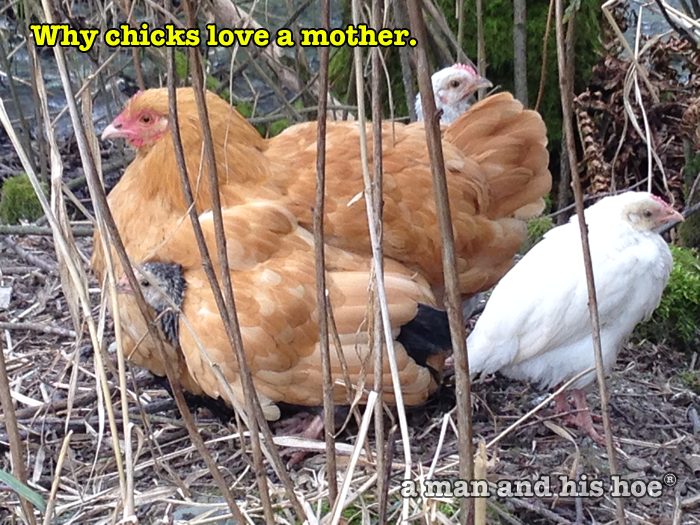
Staying Warm
These chicks are seven weeks and still have a ways to go before they are independent. Many broiler chicks have already been butchered by the time they are this old, and most only have another week or two before they are off to market. These heritage breed mix chicks are many months away from the dinner table.
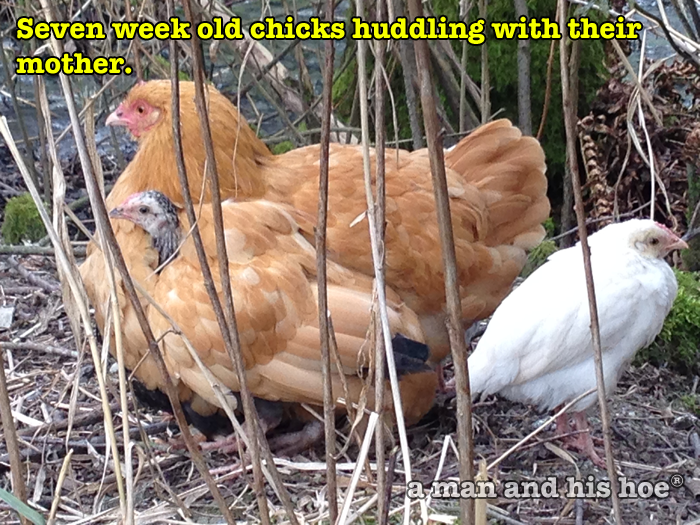
Staying Warm